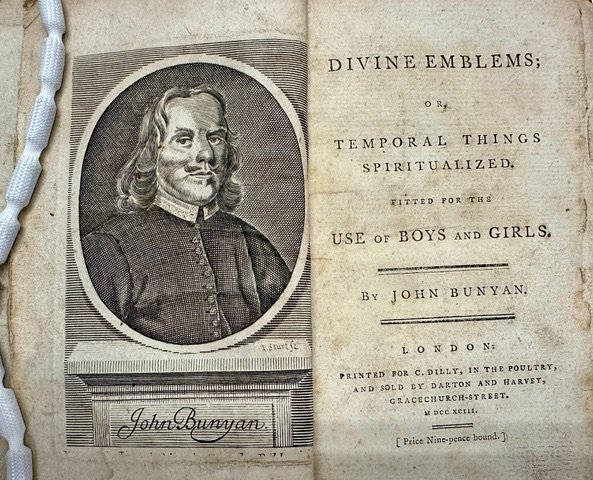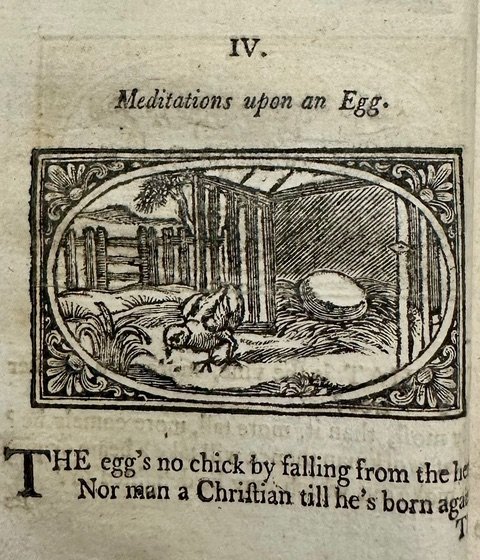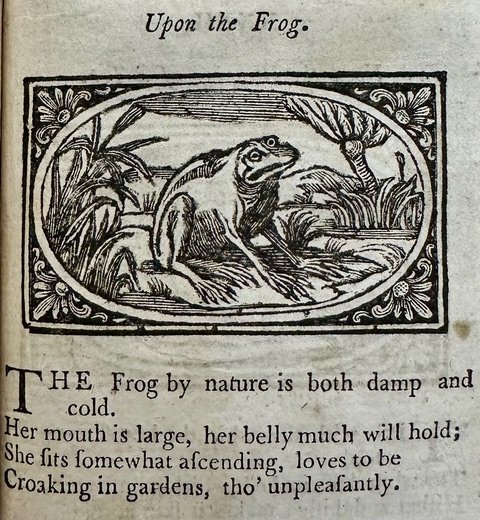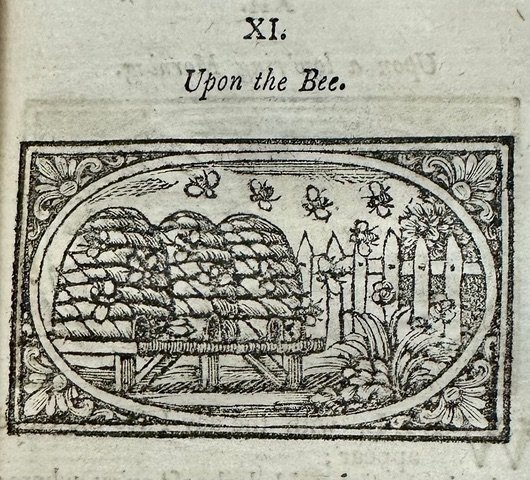Fall 2023 - Issue 4
HI, KIDS!
Each issue of the Et Cetera has a theme to help prompt conversation. This issue’s theme is Childhood, because Christmas is often a time when we remember growing up. Please let us know what you think, or better yet, let the writer know and start talking about any thoughts you had in response.
If you’re wondering what kind of content we accept: Most kinds of prose (fiction and non-fiction), poetry, or visual art is welcome. Prose pieces should be 1,000 words or less. These can include anecdotes, book reviews, movie reviews, thoughts spurred by your academic studies (no actual assignments, please), things you’d like to talk about with the community...et cetera! Visual art must be submitted in a digital format; printing will be in black and white, so do keep that in mind. Priority is given to students, staff, and faculty of Regent College.
All submissions must be sent to etcetera@regent-college.edu. Publication is not guaranteed. All submissions are subject to proofreading edits and may be returned for more substantial revision. Views expressed in the Et Cetera do not necessarily represent the views of Regent College, the RCSA Council, or the Et Cetera staff.
Thanks for making this fall a great run of issues. We can’t wait to read what you write next term!
Steven Gomez, senior editor
Tess Fuller, associate editor
Christmas Eve
By Kristin Gulley
As I unpack the wooden nativity figures—Holy Family, wisemen, shepherds, angel, fat sheep and proud camels, childhood yearnings come to mind. Advent is a time of waiting, for everyone. Childhood itself is one long wait, especially as Christmas draws near. The first Advent I recall brought me one of my most precious gifts—my beautiful baby sister, born on a bitterly cold and snowy December evening. I was just three years old—newly three—and certain that the sibling coming home with my mother would be the older brother I wanted—a lifelong friend who could pull me around the block on my sled and share in all my adventures. Before her arrival, my parents managed to explain that I would be the older sibling, but it was months before I could call “Baby Matthew,” “Sweet Caroline” instead; though she was to be younger, I could not envision her as anything but a brother. Christmas came, and with it, the first of many sister-pictures in matching outfits. Sweet Caroline’s tiny face was red with infant-rage, and my preschooler poise, rattled. What I had longed for, had been replaced with something far better than what I had imagined, but neither of us knew that yet.
Several Christmases later, we stood by the stairs under the narthex, disturbed again by what the season had brought us, but this time with better coping skills. Sweet Caroline was on the point of crying. It was her first year in the Christmas pageant, but I was a veteran Angel of the Lord, chosen not so much for my angelic behaviour as we understood it then, but for my ability to announce the Lord’s coming with enough power to reach the back pews and overflow seating in the choir loft. Last year had been my swan song; though I had hoped to be cast as Mary, I had instead served an unprecedented third year as the Angel of the Lord, and now it was my turn to watch from the pews as my sister debuted in the role I’d wanted. We had no fat sheep or proud camels that Christmas, but we did have a spotlight-star, a wobbly stable with an empty manger, and a fresh young crop of middle schoolers in the main roles on The Most Important Night of the Year, Christmas Eve. But the Angel of the Lord had backed out at the last minute, and hers was the only speaking role besides Herod and the narrator, which were both assigned to adults that year. My beautiful baby sister, Mary on this night, had only just realized that the role of Baby Jesus would be played by a real infant. This infant, almost as new to the world as my sister had been on her first Christmas, had decided that she too would have a speaking role. So, here we were, another Christmas Eve with crumpled expectations. Could the show go on without the Angel of the Lord to proclaim the Good News? Would anyone hearing a squalling Baby Jesus be able to look at the scene at the manger and think of the peace of Emmanuel, God with us? The pews upstairs were filling, and the ushers were adding the dented folding chairs to the ends of the aisles when somebody handed me the infant Christ. With the experience of a regular babysitter, I cradled and crooned to the tot and calmed the storm—a Christmas miracle! “I don’t want to be Mary! Sissy, please…!” In the noise of the crowd, only I could hear Caroline’s desperate whisper. She was younger, but taller, the Mary costume would fit me easily. But I knew she had wanted this sought-after starring role, and our parents were already upstairs, waiting to see her journey to the manger. Reluctantly, I handed the baby to my sister, straightened her Madonna-veil and assured her that she could do what I’d just done if the baby cried on the way to Bethlehem. And as we talked, the angel costume was passed through a sea of shepherds and soon I was suiting up, again, in white alb and tinsel-trimmed wings, ready to announce the birth of a baby, expected, longed-for, and delivered.
In this season of watching and waiting, yearning for what we think we want, and sometimes for what we actually need, may the peace of Christ, the peace of Emmanuel, God With Us, be yours, even in the noisiness of life, and may God always find you ready to announce His coming with joy! ✴︎
Growing
By Xue Ting Fong
“What Are You Passionate About?”
Jean Pierre Nikuze, first year representative on the RCSA Council, has started asking first-year students this very question. The Et Cetera will publish their answers in each issue from now until the end of the academic year. Welcome, first-years! We’re delighted to get to know you better!
Bryan:
I am passionate about serving people, and it all started when I worked as a missionary in Southern California, where I was involved in serving the homeless of Los Angeles. This would become a real life changing experience for me. I went there on three separate trips and it was on the second one that I discovered my passion to serve and help out in practical ways.
My ministry with the homeless goes back over a decade. One of the pastors at my former church had a working relationship with an organization he had served with previously known as Center for Student Missions (CSM).
And so when he came to my church, it was his idea that the church should start sending missionary teams down to help out CSM. CSM has offices in many of the major cities across the United States, and I found myself serving at their Los Angeles office.
One of the things I like about CSM is how they take the Matthew 25 passage about “the least of these” to heart. For them, giving people the basic needs is sort of like the ground floor of that, and missionary work there consisted of exactly this: providing the basics. I worked in soup kitchens and homeless shelters. But also with those struggling with drug addictions, as well as a lot of at-risk youth.
My first trip down to Los Angeles with CSM was in the summer of 2011. Then I went back in the summers of 2013 and 2015. During my second missionary trip in the summer of 2013, a question came to my mind: Did I actually know the gospel? And could I articulate it and share it with somebody? In 2018, this same question led me to eventually pursue a degree in Theology at Briercrest College, Saskatchewan. This degree and my previous missionary experiences worked together to teach me more about how to serve people in a practical way, whether that is through feeding or clothing them, and things like that, while, at the same time, communicating the gospel to them.
I would be happy to continue my homeless ministry in Vancouver. I've only lived here for about three months now, so am still quite new. But I definitely wait to see what God has in store. ✴︎
Kezia:
I have always been passionate about worshiping God, and living my life for Him and one of the ways I feel called to do so is through art. I have always been artistic since I was a kid. Growing up in Indonesia, I loved writing stories, drawing cartoons, and singing. But, I was very shy and anxious so it was a struggle for me to share my talents and gifts with anyone.
I longed to do it, but every time I thought about joining a talent show or auditioning for the chapel band, I would panic and then talk myself out of it, being incredibly negative and critical. My anxiety felt like a prison, and I asked God why He made me in such a way that I am unable to worship Him freely using the gifts He has given me.
I created a comic called Fences for a class and published it in 2018. The comic illustrated my struggles with anxiety and how an encounter with God saved my life. Fences are meant to be protective, and my negative self-talk did exactly that, but in doing so, it kept me from fulfilling the plans God has for me and also became how I defined myself. When the negativity became overwhelming, I cried out to God and He saved me. The last words of the comic are from Proverbs 3:5-6, which continues to impact my life deeply.
And yet I still struggle with anxiety. I am still in the process of healing from the impact of critical voices, most of which were my own. But, God has revealed the beauty in my brokenness as because of my anxiety, I am always aware of His grace whenever I put myself out there and share my talents with others. My anxiety gave me the profound understanding that I am completely dependent on God, and though that scares me sometimes, I know that’s how it’s supposed to be. I am meant to live in relationship with Him and live out my purpose in partnership with the Almighty God. This does not justify my anxiety, but it does give it a purpose and I am grateful for how God has shaped my heart with it whilst still lamenting the pain it causes.
Because of the journey I went on, and which am still going through to live as a beloved child of God, I am passionate to help others do the same. We have the freedom to be completely ourselves in front of the Lord who took on the punishment for our sins and loves us unconditionally. We do not have to be ashamed of our weaknesses as God is always willing and able to help us.
I long to worship God with abandon. I am still unable to, but I am resting in the transformative power of God’s presence and taking it one step at a time, confident that God values what I have and will make a way for my purpose to be fulfilled at the right time. ✴︎
Less Misery, More Frogs:
The First Children’s Books (& why Bunyan’s is the jolliest)
by Adrea Johnson (Part-Time Faculty and Puritan Project Assistant)
As I prepare for my Winter course, “John Bunyan and the Writing of Spiritual Pilgrimage," (insert plug here: read on to a get an idea of how fun it will be) I’ve spent time reading Bunyan’s book for children, Divine Emblems (1686), and other 17th-century children’s books. I’ve learned not only that Bunyan’s book is quite fun, but also that many of the first books written for young readers were not just boring, but quite horrifying.
Are you looking for a Christmas present for your little book worm? Perhaps consider [by that I mean avoid at all costs] one of the first children’s books written in English, Isaac Watts’s collection of Divine Poems for children (1672). As you tuck your child into bed, lull them to sleep with words of comfort and cheer from the poem “Day of Judgement”: “Hark, the shrill outcries of the guilty wretches!/ Lively bright horror and amazing anguish/ Stare thro' their eyelids, while the living worm lies/Gnawing within them….While devils push them to the pit wide-yawning.” Or not.
Let’s flip through James Janeway’s A Token for Children (1671), at least it has good reviews; Token was the most widely read Puritan children’s book of the 17th century. In his text Janeway, a Puritan minister, provides accounts of the lives and “joyful deaths” [uh oh] of children to, apparently, encourage young readers to seek God. Janeway opens by directing parents to “take some time daily to speak a little to your children one by one [sounds good so far], about their miserable condition by nature.” Maybe the rest of the book isn’t so bad. Curling up fireside under a blanket, what little one wouldn’t be entertained by Janeway’s reminder that “hell is a terrible place, that’s worse a’ thousand times than whipping, God’s anger is worse than your Father’s anger; and are you willing to anger God?” Maybe not.
I think you get the point. Early 17th-century “children’s books” aren’t really books for children at all. Most were written with the primary intention of informing parents, who ought to then remind their children daily, of their little one’s hopelessness and misery. The darkness of these texts reflects the reality of the time; many children died very young, so parents rightly feared for their child’s life, and in turn, their salvation. However, there is one children’s book of this period that breaks the mold of misery. In 1686 Bunyan wrote what might be considered the first children’s book in English that is, well, actually fun: Divine Emblems or Book for Boys and Girls. There’s still some fire and brimstone, but the pictures and poems are a wee bit more jolly [you can view a beautiful 1793 edition of the book in the Library’s Rare Books Collection].
In his preface Bunyan recognizes the problem we see in those earlier depressing examples: 17th-century writers and ministers considered children “not boys, but men,” so Bunyan intends, instead, to teach them not through sermons and threats, but by “rhimes” about “their play-things.” Many of the poems are about “play-things” in nature: a chicken’s egg, a fish, a frog, or a cuckoo. The chicken’s egg teaches us that as the egg’s shell “doth break” the chick, like our “heave’n-born souls,” is “at liberty.” The diverse “fowls flying in the Air” show little ones that all who “possess the heavens” are of different “nations,” and “shape and kind.” Bunyan’s fish reminds us that as “water is the fish’s element” and necessary for her life, so God is our element and “path of life.” Bunyan’s poems, puns, and engraved pictures are fun, quick-witted, light-hearted and would arguably bring a smile [or at least less tears] to the 21st-century young reader.
Though, as a bee-lover, I was a bit disappointed that the poem “Upon the Bee” was somewhat reminiscent of the miserable children’s books. The bee and its honey is unfortunately not a metaphor for, as I expected, the sweetness of the Bible or God’s love. No, Bunyan says the bee is simply “an emblem…of sin” and since we are tempted by its sweetness we must, “in the first place kill the bee.” So, he doesn’t get them all right. Yet Bunyan’s book is a refreshing reminder for young readers, not of the “amazing anguish” awaiting their little souls, but of the fish-like joy found in living (swimming) for God. ✴︎




Ugh! Christmas Again!
By Cathie Bolan
I hate Christmas! Does this surprise you? Maybe not; you might even share this sentiment along with many other people. But would this surprise you, maybe shock you, if I were to say that I hate Christmas and I am also a Christian, a Christ-follower. Then let me explain, although trip down memory lane is warranted in order to help make sense of this antagonism. I do need to make clear at the outset of the fact that what transpired is from the eyes of a ten-year old and does not intend to be a critique of other participants of this story.
Christmas mornings in our home were tinged with excitement and anticipation and in this particular year was no exception. There was one small detail that made this one different. I knew there was no Santa! And I also knew where the presents actually came from: my parents. With this knowledge in mind, while still in pyjamas I watched as my younger siblings tore into their presents without pausing, even for a moment, before tearing into the next present, and the next, and the next until there were no more. Somehow I was offended by the scene playing out before me and had decided I did not want to be that person, clamouring after gifts with no thought to their true value or the source. I came to associate Christmas with chaos and detested having to be dragged into every holiday season afterwards. I would not even make out a Christmas wish list after that and my mother would tell me, decades later, that it was hard to know what to get me for Christmas.
So, in coming to the present holiday season, there is still the lingering sense of hating Christmas. But what I can say is that I love the message of Christmas. I've learned to deal with the chaos and to lessen the antagonism, I've taken to playing songs associated with Christmas to remind me of the true meaning of the season. For on Christmas Day, in a manger in a town called Bethlehem, a baby boy was born who would grow to be a rabbi who travelled from town to town preaching about the kingdom of God and through his ministry came to be known as the Saviour of the world, rescuing all who believed from sin and darkness, bringing peace and re-purposing a people for God. And in the holiday season, under the tree of Christmas lies the greatest gift of love, grace and mercy from God to humanity, whose name is Jesus.
So I won't say, “Merry Christmas!” or “Happy Holidays!” Instead I would like to say, “Peace be to you as you ponder anew the true message of Christmas!” ✴︎
From Bother to Beautiful
By Laurel Ackerman
When do you start listening to Christmas music? It has become a classic question since the “Christmas Creep” started. (Check out the phenomena on Wikipedia. It has its own page.) For me, I feel very strongly about this question; and yes, there is a right answer. No Christmas music before American Thanksgiving. No whistling a chorus. No humming a tune. Not a word until the day after Thanksgiving. This includes Christmas in July. I don’t want to hear it. This position may seem extreme, but I promise you it’s my mother’s fault.
The tradition started when I was very little. You may not know, but Christmas starts four Sundays before Christmas. You may say, “Now, Laurel. That’s when Advent starts, not Christmas!” And I might respond, is there a difference? In my family, the Saturday after Thanksgiving was the day we would put on our boots, coats, hats, mittens, maybe snowpants, and we would cut down our Christmas tree. We would decorate the tree, set up the nativity scenes, and create a Christmas village while listening to Manheim Steamroller CDs. No Santas were ever in sight (although there was an ornament of Harry Potter riding a broomstick and catching a snitch). Finally, we would pull out the Advent wreath, the names of Jesus, and our song sheets.
Every night from the beginning of Advent to Christmas Day, we would light the appropriate number of candles (determined by the church calendar), read a name of Jesus and the accompanying Scripture, and end with Christmas songs. Each person in the family would choose a Christmas song and which verses they wanted us to sing. Our family is usually six (two parents and four children), so the minimum number of songs chosen would be six. However, if we had friends or additional family members at the table, that number increased. If one of my parents wanted an additional song, add that to the total. Finally, we ended with a family rendition of “Come On, Ring Those Bells.” All in all, we would sing a minimum of seven songs (with an average of nine to ten) every night from the beginning of Advent until Christmas Day.
By the time I left home and started undergrad, I absolutely detested Christmas music. We had sung our hearts out (and kept “Christ” in Christmas) for years, and I was done with it. There’s a funny thing about tradition though: when I returned home after my first semester and my parents didn’t pull out the song packets, I was disappointed. “Aren’t we going to sing?” “We thought you hated it!” “Well, I did…” Until I didn’t have it. In that moment, I realized that the songs had become more than an annoying Christmas tradition. They had created rhythm and focus in an often-hectic time of year. They had brought our family together. Now, it is usually just my husband and me eating supper on most nights during Advent; and often I have found myself wishing for my family’s voices and a song (or seven) sung together. ✴︎
Stumped
By Steven Gomez
You went upstairs behind a door—
Of course you’re coming down,
With trumpets blaring, clouds aflame,
With sceptre, sword, and crown.
Prepare the way! Clean up the mess!
Make sure the band’s in tune!
And keep an eye up to the sky,
For He is coming soon!
But what if you’re already here,
Just hidden out of sight,
The way our floodlit cityscapes
Drown out the stars at night?
We look up from this holy mess,
This stump with rotten roots;
Are you coming down to earth,
Or springing up a shoot?
Uprooting all we think we know
Of time and love and grace
With nothing but a wink and nod,
And laugh lines in your face.
It wouldn’t be the first time that
We peered at you and wondered:
“Are you the one who was to come
Or should we seek another?”
Your mothballed coat and weary boots
Stump our expectation,
Redeem our sight, reveal the blight
As holy consecration.
The sudden unexpected twist
Makes smiles out of frowns—
A lion who lay with his sheep
Has turned the world around.
While we await the end of hope
In all our surety,
The only thing that’s certain
Is a certain mystery—
So tell me truth, but tell me slant,
Your hands over my eyes
Just like a child on Christmas morn,
And give me a surprise!
In the bleak midwinter
By Christina Rossetti
In the bleak midwinter, frosty wind made moan,
Earth stood hard as iron, water like a stone;
Snow had fallen, snow on snow, snow on snow,
In the bleak midwinter, long ago.
Our God, Heaven cannot hold Him, nor earth sustain;
Heaven and earth shall flee away when He comes to reign.
In the bleak midwinter a stable place sufficed
The Lord God Almighty, Jesus Christ.
Enough for Him, whom cherubim, worship night and day,
Breastful of milk, and a mangerful of hay;
Enough for Him, whom angels fall before,
The ox and ass and camel which adore.
Angels and archangels may have gathered there,
Cherubim and seraphim thronged the air;
But His mother only, in her maiden bliss,
Worshipped the beloved with a kiss.
What can I give Him, poor as I am?
If I were a shepherd, I would bring a lamb;
If I were a Wise Man, I would do my part;
Yet what I can I give Him: give my heart.
The Last Page
By Natalia El Hage
I cannot say for sure when my love for books started and maybe it is not a matter of chronological referral. I can say, however, where my love for books started, and it did start with my mother.
I have a full cabinet of memories inside of my mind, of my mom reading books around the house and also to me before bed (I still remember my ‘Disney princesses’ box). The little me would lay on the bed, ready to end another day and listen carefully to my mother’s enthusiastic reading of books, curious to see where the story was going. I would be present, not anxious, neither nervous nor rushed. I would just be transported to the marvellous world being described to me.
As I grew up and started to understand (in a certain way) the meaning of words orderly arranged on a page, I developed the habit of reading myself. With this new hobby, something else began: I would always read the last page of a book before I would start it. I remember being a teenager walking around the bookshop and reading the end of the books that would catch my attention and deciding with that which stories I would read. You see, reading stories for me has never been only a way of acquiring knowledge but a way to expand my mind, learn by observation, feeling and experiencing things. For years, I believed this habit of reading the last page first was a matter of curiosity and that I was fully interested in the journey and not just the end.
As the years went by I became a Christian and as my relationship with God would get more intimate I would learn more about myself in learning more about Him. Combined with my spiritual journey, I also got an interest in emotional intelligence and psychology. In this lifelong process of recognizing myself in these lights I started to understand where the habit of reading last pages first was coming from. The truth is that it came from the need for control and anxiety about the future, about the unknown. Although nowadays I can come across as a person who lives in the present and enjoys life (and it is partially truth) this was and is not always the case.
Coming from a broken home and having to go through changes I did not choose myself in my formative years created for me a feeling of ‘floating’. It was like I was not at all in any control of my own personal and graphic story. With no idea of what life would be like for me and without hope, the one way I could feel any kind of control was by making sure that the end of a story was good, acceptable, and a safe place. This was a way of escaping and having hope.
Ironically, much of our relationship with God requires giving up control and trusting Him. This was not something that came easily for me and it’s still a work in progress that did not have any substantial advance during the first years. I did not force myself to stop reading the last page and I did not force myself into falsely giving control to God and he did not either. In loving me and working in me continuously through the Holy Spirit the need to read the last page of books faded and I started to have a new source of hope: God himself.
Nowadays I still read some spoilers because I am indeed curious and a little anxious, but this is not a need anymore and does not come from a place of dwelling anymore. I am sorry, apostle Paul (1Cor 13:11), but one of the things I do today is the same thing I would do as a child. I would sit and listen to my mother, reading me adventures and trusting all would be good at the end. Now, I sit and listen to God, not only as an observer but as a character myself, as he tells me, at his own pace, page after page, the next scenes and chapters of this unfinished story, one paragraph at a time. I can be present and rest again, because it is safe to hear the story from the author himself and to know that no matter what, the last page will be the best it can be. ✴︎

